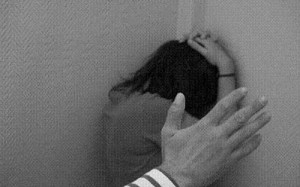Mind of the Abusive Lover

Most people when they hear about a love relationship that has become abusive feel concern for and protective of the victim. This makes sense. However in this essay I’m going to ask you to take some of that concern and protectiveness and apply it to the abuser.
Let’s talk about the abusing person as someone in psychological trouble and in need of our help. To understand the mind of the abuser we have to start with the very human ‘need for love.’
The human need for love is something we can all identify with. If your need for love was treated with respect and satisfied to some extent at least, you have a better chance of being in a healthy love relationship later in adulthood.
Most abusers I have met are people whose need for love was not respected and not satisfied to any appreciable extent. Instead of love, abusers more likely witnessed or experienced some combination of abandonment, neglect, trauma, violence, or abuse directed at them. This sets the all too human stage for this destructive love-life problem.
From there we have to go to an understanding of what happens to an abuser when his or her need for love is stimulated in a current love relationship. Now understand that this need for love might have been kept under raps for some time successfully avoiding the difficulties I am about to describe. Inevitably for most abusers, they fall in love and their dissatisfied need for love naturally emerges.
It’s important to realize that unresolved childhood and adolescent needs for love never really go away. They’re losses and they have to be grieved and let go of. The greater the past hurt, the less likely this healthy grieving process will be undertaken. Instead, it’ll be easier to look for an imagined resolution by finding another adult, preferably the person to be loved, to satisfy those past needs the way they should have been earlier in life.
Of course all of this can be pretty much out of awareness for most people going through this, and that’s certainly a big part of the problem. If you don’t know something is a problem you can’t really work on it.
So now we have a person, the future abuser, feeling unresolved needs for love belonging to a past era of life. As the needs emerge they attach to the person being loved. Since these disappointed needs for love can’t be resolved in an adult love relationship they will inevitably be accompanied by feelings of emptiness, insecurity, hurt, and fear.
This is precisely when the trouble starts. Since the abuser usually doesn’t have language for this problem it’s all experienced on an indirect emotional level. Without the ability to directly communicate this experience it can’t be nipped in the bud.
These painful feelings of emptiness, insecurity, hurt, and fear generate efforts to ‘control’ the person who is perceived to be creating the feelings: the lover. Every effort a lover makes to separate, even in a healthy way, are perceived as efforts to intentionally hurt the abuser. Efforts to live independently in the love relationship are now viewed with suspicion.
Family and social relationships outside of the immediate family are experienced as a threat. More and more control is applied in an effort to reduce the painful emotions being experienced by the abuser.
It’s common for a person caught in this painful downward spiral, to supplement control with substance abuse at first. The advantage to introducing alcohol or other substances is the temporary numbing or sedative effects they can create.
Although this short-term misguided solution inevitably proves to be just an illusion. Alcohol abuse, for example, can and will increase the likelihood of emotional distortions, paranoid feelings, and loss of control.
When these limited measures do not help, the desperate abuser will exercise emotional and/or physical abuse to curtail whatever activities are viewed as threatening the feeling of security provided by a controlled and predictable relationship. The abuser is now desperately attempting to avoid the emotional pain of abandonment, insecurity, hurt, and fear by controlling the person loved in whatever way possible including criticism, threats, and physical violence. The tragic outcome is that the victim of abuse ends up experiencing the hurt the abuser is desperately trying to avoid.
Rehabilitation of the abuser involves developing a tolerance for the underlying emotions the abuser is avoiding long enough to learn how to articulate the emotional experience. Take a moment to appreciate the difficulty in this.
Abusers prefer the defensive illusion of power over the powerlessness of their victims. The down side is, this illusion of power is much more resistant to the humility required for effective psychotherapy.
Once the abuser is able to articulate remembrances of childhood or adolescent loss and hurt, the grieving of a frustrated need for love can begin. It’s a beautiful thing to witness an abuser’s inability to continue abuse because he or she now remembers and develops a feel for the abusive experiences of his or her own past.
Comments? Welcome. Dr. Tom Jordan
